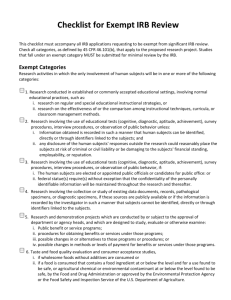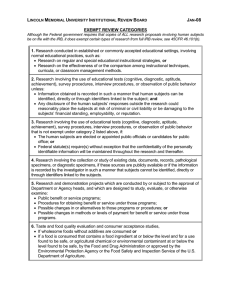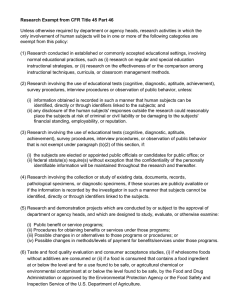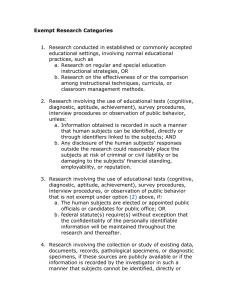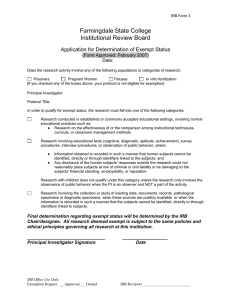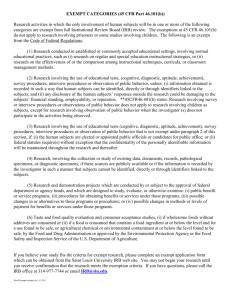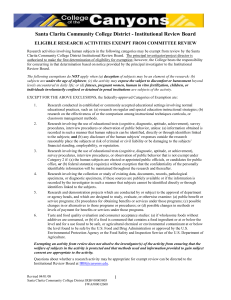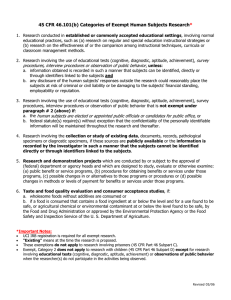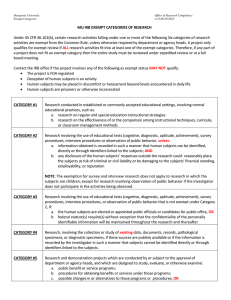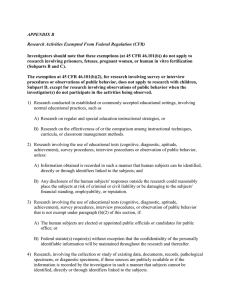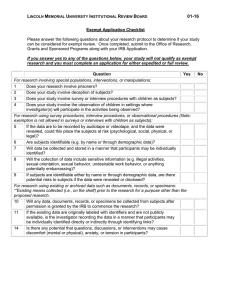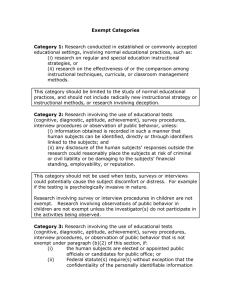IRB Exempt Categories
advertisement
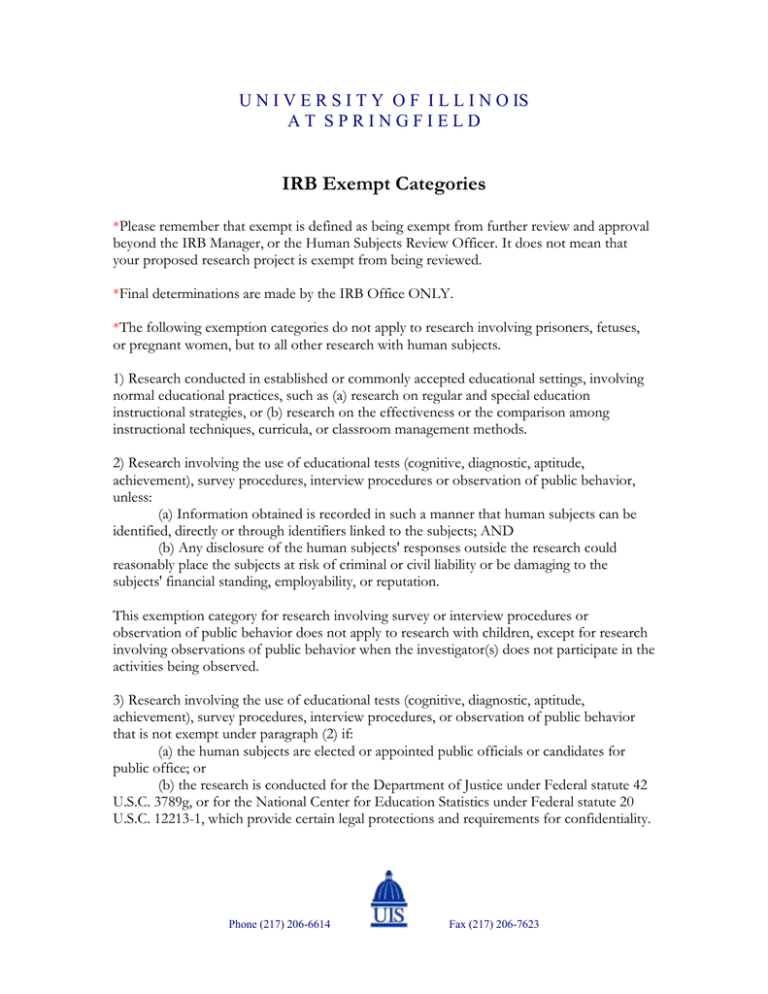
U N I V E R S I T Y O F I L L I N O IS AT SPRINGFIELD IRB Exempt Categories *Please remember that exempt is defined as being exempt from further review and approval beyond the IRB Manager, or the Human Subjects Review Officer. It does not mean that your proposed research project is exempt from being reviewed. *Final determinations are made by the IRB Office ONLY. *The following exemption categories do not apply to research involving prisoners, fetuses, or pregnant women, but to all other research with human subjects. 1) Research conducted in established or commonly accepted educational settings, involving normal educational practices, such as (a) research on regular and special education instructional strategies, or (b) research on the effectiveness or the comparison among instructional techniques, curricula, or classroom management methods. 2) Research involving the use of educational tests (cognitive, diagnostic, aptitude, achievement), survey procedures, interview procedures or observation of public behavior, unless: (a) Information obtained is recorded in such a manner that human subjects can be identified, directly or through identifiers linked to the subjects; AND (b) Any disclosure of the human subjects' responses outside the research could reasonably place the subjects at risk of criminal or civil liability or be damaging to the subjects' financial standing, employability, or reputation. This exemption category for research involving survey or interview procedures or observation of public behavior does not apply to research with children, except for research involving observations of public behavior when the investigator(s) does not participate in the activities being observed. 3) Research involving the use of educational tests (cognitive, diagnostic, aptitude, achievement), survey procedures, interview procedures, or observation of public behavior that is not exempt under paragraph (2) if: (a) the human subjects are elected or appointed public officials or candidates for public office; or (b) the research is conducted for the Department of Justice under Federal statute 42 U.S.C. 3789g, or for the National Center for Education Statistics under Federal statute 20 U.S.C. 12213-1, which provide certain legal protections and requirements for confidentiality. Phone (217) 206-6614 Fax (217) 206-7623 4) Research involving the collection or study of existing data, documents, records, pathological or diagnostic specimens, if these sources are publicly available or if the information is recorded by the investigator in such a manner that subjects cannot be identified, directly or through identifiers linked to the subjects. 5) Research and demonstration projects which are conducted by or subject to the approval of department or agency heads, and which are designed to study, evaluate, or otherwise examine: (a) public benefit or service programs; (b) procedures for obtaining benefits or services under those programs; (c) possible changes in or alternatives to those programs or procedures; or (d) possible changes in methods or levels of payment for benefits or services under those programs. 6) Taste and food quality evaluation and consumer acceptance studies, if (a) wholesome foods without additives are consumed or (b) a food is consumed that contains a food ingredient at or below the level and for a use found to be safe, or agricultural chemical or environmental contaminant at or below the level found to be safe, by the Food and Drug Administration or approved by the U.S. Environmental Protection Agency or the Food Safety and Inspection Service of the U.S. Department of Agriculture. Phone (217) 206-6614 Fax (217) 206-7623
